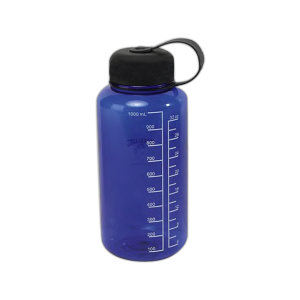Brenda Miller, Columnist
As temperatures increase and the weather becomes less conducive to long study sessions at Ames, students flock outside to catch up on some much-needed sun and fresh air between their end-of-the-year stresses.
Accompanying them is their summer gear, hauled out from hibernation in closets or under beds for several months of use.
A frequently underused member of this gear is the reusable water bottle. We all have them, and many of us even have several of them.
We received one as first-years, and some have ones from athletic events or various promotional giveaways. If anything, they are easy to come by. With such easy access to reusable bottles, it is baffling how many people instead opt for disposable plastic bottles.
From an environmental standpoint, disposable plastic bottles are harmful and wasteful. They are often thrown away and do not break down quickly in a landfill.
I have already seen several plastic water bottles abandoned on the quad, and as the weather gets warmer, these instances will only become more frequent.Even if they are recycled, the energy and resources required to make the plastic bottles is an avoidable expense.
If you decide to refill the plastic bottle, it will only last so long. They are intended for one-time use. Bacteria buildup and chemicals from the bottle leach into your beverage, both of which could be potentially harmful to you.
In addition to the environmental expenses, the individual financial cost of disposable bottles is unnecessary. A bottle of water costs $1 or more, whereas refilling a water bottle costs a fraction of a cent.
You could refill your reusable water bottle for an entire year and still spend less than the cost of a single bottle of water.
There are water fountains everywhere on campus, and if you have been in CNS or Presser, then you have probably noticed the highly frequented and nifty hydration stations.
You just put your bottle in the place indicated and fill it up with filtered water without having to tip it or turn it like at other water fountains.
Bottled water generally does not give any benefits beyond those of tap water. Tap water has stricter governmental regulations than bottled water, so it is often more beneficial to drink tap water instead of bottled water.
Bottled water is often just reprocessed tap water, coming from the same sources but processed and delivered in a more wasteful and less regulated manner.
If you don’t have a reusable water bottle, they are easy to acquire. Almost every store has them. There are even surprisingly sturdy ones at the dollar store, so that dollar you spend on a bottle of water can be instead spent on a reusable water bottle.
We have access to portable water. Forego the plastic and fill up from the tap. The choice is crystal clear.
Tap into reusable bottles

